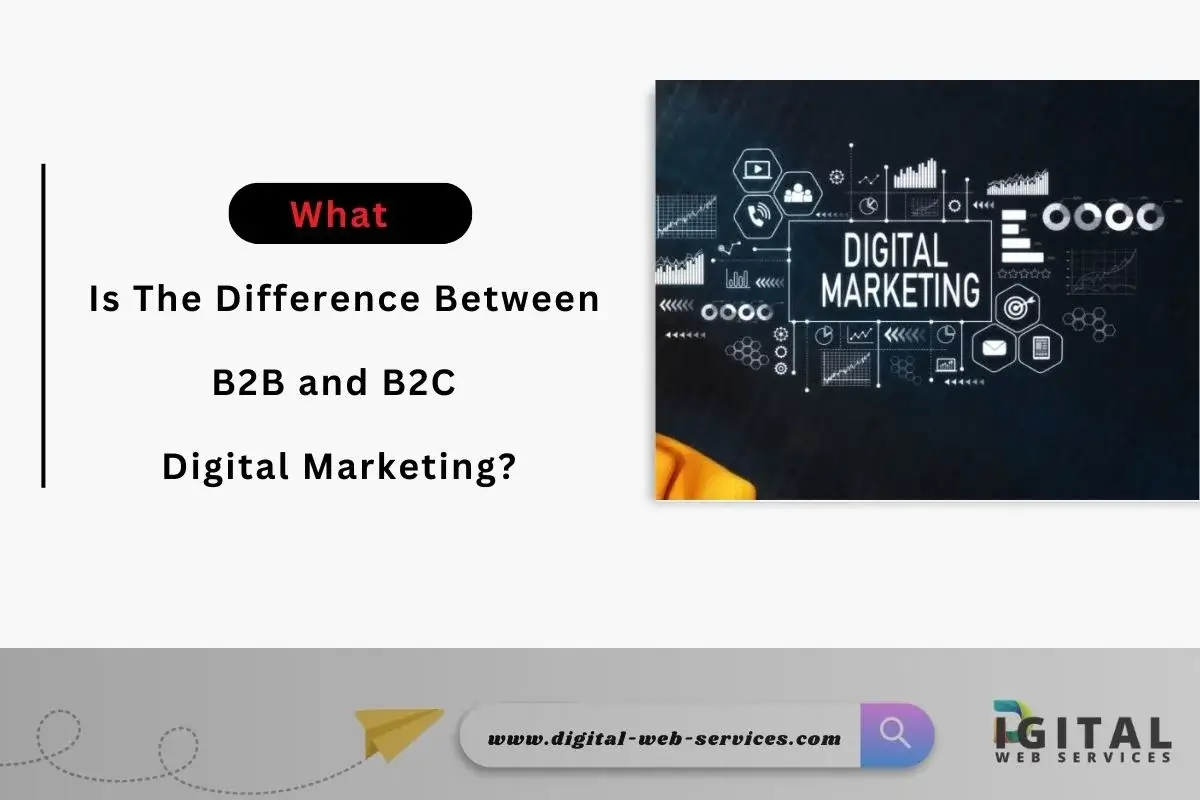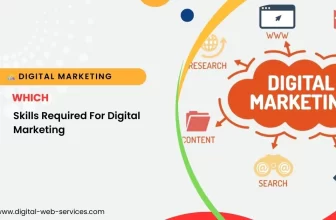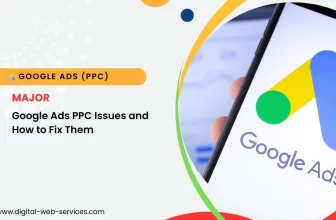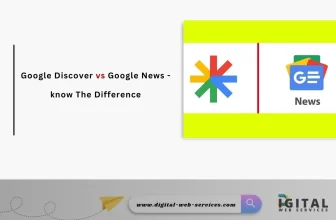
Two primary types of digital marketing approaches are Business-to-Business (B2B) and Business-to-Consumer (B2C) marketing. While both B2B and B2C digital marketing aim to build awareness, generate leads, and drive sales, they vary significantly in terms of target audience, strategy, and overall approach. Understanding these differences is crucial for any marketer or business owner aiming to effectively reach their intended audience. Let’s explore the fundamental distinctions between B2B and B2C digital marketing.
Difference Between B2B and B2C Digital Marketing
1. Target Audience
- B2B Marketing: In B2B, businesses market their products or services to other businesses or organizations. The target audience comprises professionals, decision-makers, or company stakeholders. The goal is often to meet the needs of organizations rather than individual consumers.
- B2C Marketing: In contrast, B2C targets individual consumers. The focus is on promoting products and services that appeal to individual needs, wants, and lifestyles. The audience is broader and typically includes people looking for personal enjoyment, convenience, or improvement in their daily lives.
2. Purchase Decision-Making Process
- B2B: B2B purchases are typically characterized by a more complex decision-making process, often involving multiple stakeholders and levels of approval. The decision is driven by logical factors, such as return on investment (ROI), efficiency, and long-term value. The buying process can be lengthy and requires detailed product information and specifications.
- B2C: In B2C, the purchase decision is generally quicker and more emotionally driven. Consumers often make purchases based on personal preferences, brand appeal, or short-term needs. The decision-making process in B2C is typically less complex, with fewer steps and approvals required.
3. Content and Messaging Approach
- B2B: In B2B marketing, content is often more detailed, informative, and educational. It focuses on providing value through industry insights, case studies, whitepapers, and in-depth blogs that help establish credibility and expertise. The messaging is formal and professional, aimed at providing information that will help the audience make a well-informed decision.
- B2C: B2C content is typically more engaging, entertaining, and visually appealing. The goal is to capture consumer attention quickly and encourage immediate action, often through short, impactful content such as social media posts, videos, and promotional messages. Messaging in B2C tends to be more conversational and is designed to appeal to emotions, desires, and needs.
4. Digital Marketing Channels
- B2B: B2B marketers often focus on channels that allow for in-depth content and professional networking, such as LinkedIn, email newsletters, webinars, and industry forums. Search engine optimization (SEO) for informative content, as well as pay-per-click (PPC) advertising targeting specific professional keywords, is also common.
- B2C: B2C marketing, however, leans heavily into social media platforms like Facebook, Instagram, and TikTok, where consumers spend a significant amount of personal time. B2C marketers also prioritize email marketing for promotions, influencer marketing, and video marketing to create visually appealing and easily consumable content.
5. Sales Cycle Length
- B2B: The sales cycle in B2B is generally longer, as the decision-making process involves multiple stages and considerations. Marketers focus on nurturing relationships over time through lead nurturing emails, retargeting campaigns, and detailed product demonstrations.
- B2C: The B2C sales cycle is shorter since the consumer’s buying journey often involves immediate or spontaneous decisions. B2C marketers emphasize driving quick conversions through compelling offers, time-sensitive promotions, and straightforward calls-to-action (CTAs).
6. Goals and Metrics
- B2B: In B2B marketing, the primary goals often include lead generation, brand authority, and long-term partnerships. Key metrics include lead quality, cost per lead, and the lifetime value of clients.
- B2C: B2C marketing goals revolve around building brand loyalty, driving quick sales, and creating positive customer experiences. Common metrics include website traffic, customer engagement, conversion rates, and revenue per purchase.
7. Customer Relationships
- B2B: B2B marketing often emphasizes building long-term relationships with clients. These relationships require trust, reliability, and consistent support, as B2B customers typically make recurring purchases over time.
- B2C: B2C marketing prioritizes one-time or repeat purchases from individuals, with an emphasis on building a strong brand presence. Customer loyalty and satisfaction are essential, but individual relationships are often less critical than they are in B2B.
Conclusion
While B2B and B2C digital marketing share similar goals of generating leads and driving sales, their approaches vary significantly due to differences in target audience, content style, decision-making processes, and preferred digital channels. B2B marketing focuses on delivering valuable information and fostering long-term relationships, while B2C marketing seeks to create engaging experiences and encourage quick, emotion-driven purchases. Recognizing these differences enables businesses to better tailor their digital marketing strategies to meet the unique needs of each audience, ultimately leading to improved engagement, conversions, and customer satisfaction.
Digital Web Services (DWS) is a leading IT company specializing in Software Development, Web Application Development, Website Designing, and Digital Marketing. Here are providing all kinds of services and solutions for the digital transformation of any business and website.










